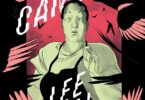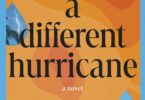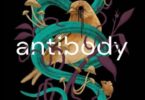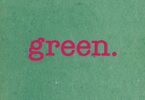Jes Battis, I Hate Parties (Nightwood Editions, 2024), 96 pp., $19.95.
When I saw the title of Jes Battis’ poetry collection I Hate Parties, I knew this was a book I had to read. I Hate Parties is described in Nightwood Editions’ promotional materials as a collection that “offers the B-side of growing up queer, autistic and nonbinary.” As someone who grew up queer in a small town and who also felt chronically uncomfortable at social events, I found a lot to relate to in Battis’ collection.
Battis teaches literature, creative writing, and trans and queer studies at the University of Regina. Originally from Chilliwack, British Columbia, Battis pens urban fantasy, horror, and romance as well as poetry. I first encountered Battis’ work when reviewing their nonfiction book Thinking Queerly: Medievalism, Wizardry, and Neurodiversity in Young Adult Texts. I’ve also read their novel The Winter Knight, an urban fairy tale/detective story that reimagines elements of the King Arthur myth with queer and trans heroes. Based on this exposure, I expected to find I Hate Parties layered with pop culture and mythological references, spiced with a healthy dose of humour, and offering an insightful and sensitive view of queerness. In that, I was not disappointed.
I Hate Parties includes 34 poems, divided into four sections: Penalties, Calamities, Episodes, and Transits. Poems from the collection previously appeared in The Malahat Review, the Ex-Puritan, CV2, and other venues.
Some poets, while conveying interesting thoughts, can’t overcome a certain self-consciousness, an over-insinuation of self into the poem that creates a barrier to the reader’s full engagement. While many of the poems in I Hate Parties have an “I” persona or a narrator, the poems are sufficiently outward-looking and layered to enable readers to connect to their own memories and experiences.
Historic figures like Socrates and Plato and characters from myth and legend are woven into the poems, and pop-culture references to television shows like Buffy the Vampire Slayer and performers like Tori Amos and Don McLean are also sprinkled through the collection. Star Trek and the James Bond movies make an appearance, as do The Little Prince and the Narnia chronicles. These references connect the poems to a larger world, as well as evoking a sense of familiarity for readers.
As the title of the poem “Small-town Gays” suggests, a number of the poems depict Battis’ experiences growing up queer in Chilliwack. Though I spent my formative years halfway across the country in southwestern Ontario, some of Battis’ poems contained echoes of my own experiences. In “Little Earthquakes,” which includes a reference to the Tori Amos album of the same name, Battis notes of a lover, “You make my small town / nervous.” (20) “Bear of My Youth” contains the lines
You whipped out a Rainbow Brite
wallet in the food court. I was scared
by how brilliant you were, how
visible. (18)
These references brought back memories of how it felt to be in public places with someone more “out” than I was.
A number of poems deal with neurodiversity. “Tism” discusses TikTok’s reference to “tism rizz,” which
. . . refers to a curious
charm possessed by autistic people, a kind
of mental catnip that makes us irresistible
as partners. We’re so quirky and fun, like
Popples from the eighties who would curl
into a ball at parties. (60)
Battis rebuts the carefree images described above with examples of emotionally painful experiences, adding:
. . . I’ve never felt charming,
though people call me that. Every ex
has frowned at me, the way you’d perceive
a maple bug who appears in the middle
of winter. Why? How? (61)
While the majority of the poems are free verse, some well-crafted form poems are included in the mix. “I Hate Parties” is a sestina, though Battis uses enjambment to good effect to keep the formulaic end-word scheme from being obtrusive. The repetition of lines in “Dubbed,” a villanelle, gives the poem a musical lilt, which seems appropriate given the line, “Bon Jovi’s voice burns holy as he sings.” (31)
I Hate Parties is deeply rooted in the Canadian experience, an aspect that added to the collection’s appeal for me. In “Triple Axel,” Battis refers to Olympic figure skating as “the gayest thing to watch / in Chilliwack at the time.” (12) The poem “Glass Crack Time Machine” includes the lines, “I’m Marty / McFly, dim in the wheat,” (81) and alludes to driving along “the lunar surface / of Saskatchewan roads.” (79) Geese and hockey rinks appear in other poems, while in “Small-town Gays” two characters
Stand on the porch
raccoons caught
in misadventure
hands pressed together. (23)
Humour—sometimes sly, sometimes sarcastic, sometimes gentle—is also a feature of Battis’ writing. In “My Boyfriend Names Every Bond Movie Chronologically,” Battis wonders, “Do spies have nine lives, / like queers who survive the prairies?” (98) “Marlena Is Once Again Possessed” explores soap operas:
We still watch Y&R, now mostly
about corporate takeovers
and the considerable paperwork
of Jabot Cosmetics. The new romantic
frontier: sexy companies dragging
tongues over each other. (69)
The humour is a darker in poems like the poignant “It’s Funny,” which muses
Like Barbie, I’m thinking more
about death and what it means
to die well and alone in a world
on fire. (50)
The collection’s opening poem, “Triple Axel,” exhibits many of the features that make I Hate Parties appealing. The first lines, “I pretend to be ill / so I can watch figure skating / at Lillehammer,” (11) set the scene. The poem references “the Battle of the Brians” (12) [the matchup between Brian Boitano and Brian Orser] six years prior, remembering
two comets against the drab
orange arena. Shakespearean
rivalry of gays, those lines
of beauty, still closeted,
but couldn’t I see it
even then? (12)
Like many of Battis’ poems, “Triple Axel” is not just about one thing (watching figure skating), it’s also about coming out, and includes wryly humorous reflections like
. . . If I’d waited a year,
I might have ridden Ellen’s
wave. I’m always
at the wrong party . . . (13)
But there are also allusions to more serious matters:
. . . They all dance
around me, skates winking fire,
gold trim, epaulettes, death
spiral of AIDS before
the cocktail. It spins us
still, and we are snow
under the blade. (12)
The layering of multiple images, meanings, and themes in one place makes “Triple Axel” a powerful poem, and a fitting choice to kick off the collection.
Before reading I Hate Parties, I wondered whether I’d find in this collection the same features I’d enjoyed in Battis’ other writing. As was the case in Thinking Queerly, where Battis openly shared their own experiences with neurodiversity, the poems feel both authentic and courageous. Like The Winter Knight, I Hate Parties provides affirmation through the positive and accepting depiction of queerness. The inclusion of pop culture and literary references ranging from the songs of Tori Amos to time machines provides a point of connection to a broader society, reminding us that there is more to us than our sexual identities, though some people seem to want to judge us based on that sole aspect. Resonant, reflective, entertaining, and insightful, I found I Hate Parties to be a moving and entertaining read.
 Lisa Timpf (she/her) is a retired HR and communications professional who lives in southwestern Ontario. Her book reviews have appeared in NewMyths, Star*Line, The Seaboard Review, and other venues. Timpf also writes poetry and fiction, mostly in the speculative genre. Her speculative haibun collection, In Days to Come, is available from Hiraeth Publishing. She also has an anthropomorphic short-story collection titled Roxy’s Legacy planned for release in 2025/26. You can find out more about Lisa’s writing and artwork at http://lisatimpf.blogspot.com/.
Lisa Timpf (she/her) is a retired HR and communications professional who lives in southwestern Ontario. Her book reviews have appeared in NewMyths, Star*Line, The Seaboard Review, and other venues. Timpf also writes poetry and fiction, mostly in the speculative genre. Her speculative haibun collection, In Days to Come, is available from Hiraeth Publishing. She also has an anthropomorphic short-story collection titled Roxy’s Legacy planned for release in 2025/26. You can find out more about Lisa’s writing and artwork at http://lisatimpf.blogspot.com/.







